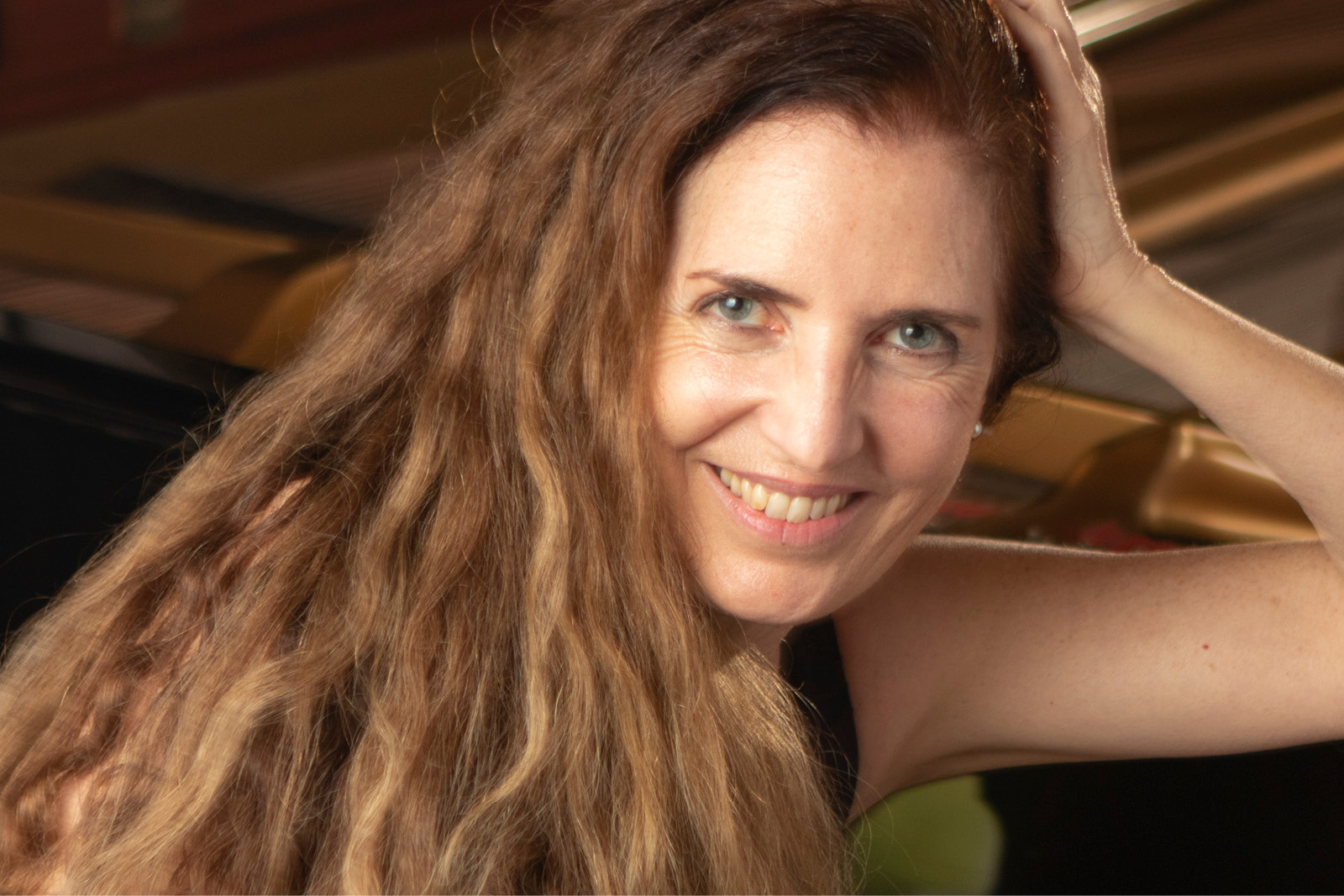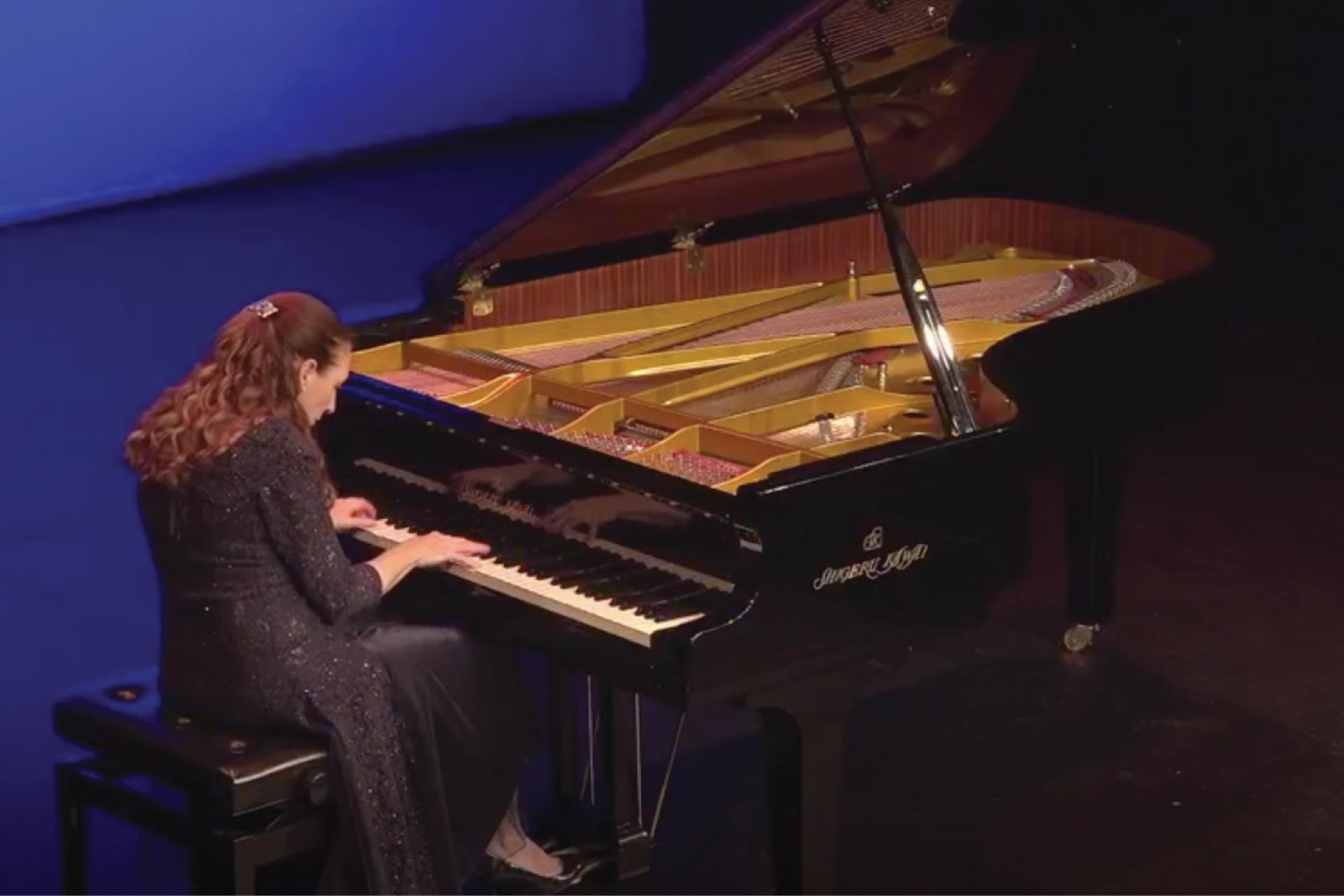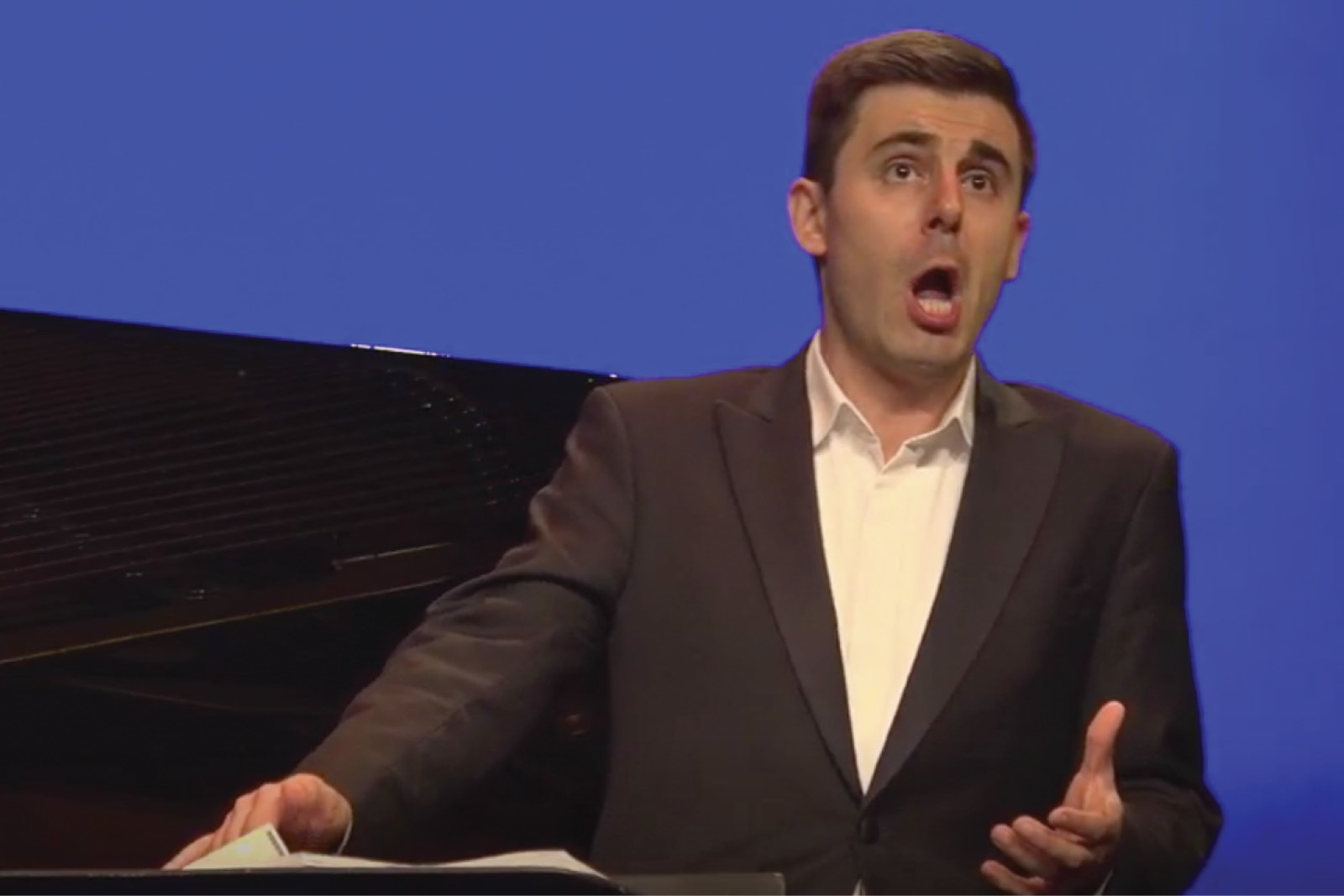Melbourne Digital Concert Hall launched last week with a concert by musicians from Arcadia Winds, who inaugurated this brand new initiative by Adele Schonhardt and Chris Howlett designed to provide musicians with an income stream while concerts are shut down due to the COVID-19 pandemic.
 Pianist Elyane Laussade. Photo courtesy of Melbourne Digital Concert Hall
Pianist Elyane Laussade. Photo courtesy of Melbourne Digital Concert Hall
Set up in a matter of weeks, Melbourne Digital Concert Hall is now in full swing, with musicians performing to an empty Athenaeum Theatre, in a “clean performance environment where the musicians have had no contact with any other human” throughout the recording, which is filmed – quite beautifully – with a number of cameras controlled remotely. Less than a week since it opened, Melbourne Digital Concert Hall had already hosted five concerts before last night’s two concerts, which were a piano recital by US-Australian Elyane Laussade in the 7pm slot and a recital of art song by Nicholas Dinopoulos and Andrea Katz at 8:30pm.
Laussade opened her recital of French and American music – titled An American in Paris – with the second of Cécile Chaminade’s Opus 35 Concert Etudes from 1886, Automne, Laussade luxuriating in its wistful nostalgia before bringing a lyrical sweep to the the gusts and eddies of the Etude’s central section. The autumnal Chaminade provided a neat thematic link to the boisterous Maple Leaf Rag of Scott Joplin, given a crisp reading here, paired with a more laid-back – at least to begin with – Joplin rag, The Easy Winners, which appeared alongside the more famous The Entertainer in the 1973 film The Sting.
 Elyane Laussade. Photo courtesy of Melbourne Digital Concert Hall
Elyane Laussade. Photo courtesy of Melbourne Digital Concert Hall
The glistening of Debussy’s water evocations in Reflets dans l’eau from the first book of Images took us back to France, Laussade’s final shimmering high notes particularly magical. She paired this with a spacious account of La fille aux cheveux de lin from the first book of Préludes.
American composer Zez Confrey’s rippling, late-Romantic inspired Concert Etude in F Sharp Minor, composed in 1929, drew a thread back to the USA, followed by his jazzier, upbeat – and aptly named – Dizzy Fingers of 1922.
A teased out rendition of Erik Satie’s Gnossienne No 1 gave us another taste of Paris before Laussade brought the concert to a close with a piano arrangement of the George Gershwin’s Rhapsody in Blue of 1924 – an effective concert piece, even without the clarinet slide – played with plenty of character, energy and humour.
 Nicholas Dinopoulos. Photo courtesy of Melbourne Digital Concert Hall
Nicholas Dinopoulos. Photo courtesy of Melbourne Digital Concert Hall
In the later session, bass-baritone Nicholas Dinopoulos and pianist Andrea Katz performed a song recital for Songmakers Australia, opening with Benjamin Britten’s beautifully simple setting of Yeats’ Down by the Salley Gardens and Roger Quilter’s of the Tennyson poem Now Sleeps the Crimson Petal.
Dinopoulos brought a light intimacy to his sound, with wry humour in the short vignettes of Poulenc’s early song cycle Le Bestiaire (ou Cortège d’Orphée), which the musicians “dedicated to our pets”. The festive Le Dauphin (the dolphin) was a particular highlight, as was the final, melancholy La Carpe (the carp).
The next bracket centred on settings of texts by the German poet Heinrich Heine, Dinopoulos bringing a martial swagger to Schumann’s Die beiden Grenadiere, before giving us finely judged accounts of the three Heine settings from Mythen – Die Lotusblume, Was will die einsame Träne and Du bist wie eine Blume.
Likewise, Dinopoulos and Katz plucked out the six Heine settings from Schubert’s Schwanengesang, opening with the chirpy Das Fischermädchen. A brooding Am Meer – the powerful line in the final verse “Die Seele stirbt vor Sehnen” ringing with emotion – and Die Stadt, was followed by a desolate Der Doppelgänger and Ihr Bild, delivered with anguished feeling, before Katz and Dinopoulos brought the selection to a powerful climax with the fury of Der Atlas, finishing with the sweetness of Die Taubenpost.
The broader pleasure of Vaughan Williams’ Silent Noon (setting Dante Gabriel Rossetti) – with a particularly sweet high note from Dinopoulos in the final bars – relieved the dark tension of the Schubert, before the hope and relief of Homeward Bound from Charles Villiers Stanford’s Songs of the Sea, Dinopoulos almost ecstatic at times. For an encore Katz and Dinopoulos gave us Vision from Australian composer Alan Tregaskis’s Five Blake Songs, bringing the recital to a hushed close.
While this format can’t, of course, replace the live concert experience, Melbourne Digital Concert Hall makes for a compelling alternative in these constrained times, and although we might miss the moments when we would normally hear applause (comments on social media go some way to filling that void), we’re nonetheless drawn in to the profound intimacy and detail of the music’s quieter moments. Bravo.
Melbourne Digital Concert Hall Continues with Kristian Chong and Zoe Knighton on April 3, Duo Eclettico With Linda Barcan and Ian Munro on April 9 and Australian Chamber Choir Quartet on April 10 and Calvin Bowman on April 12











Comments
Log in to join the conversation.